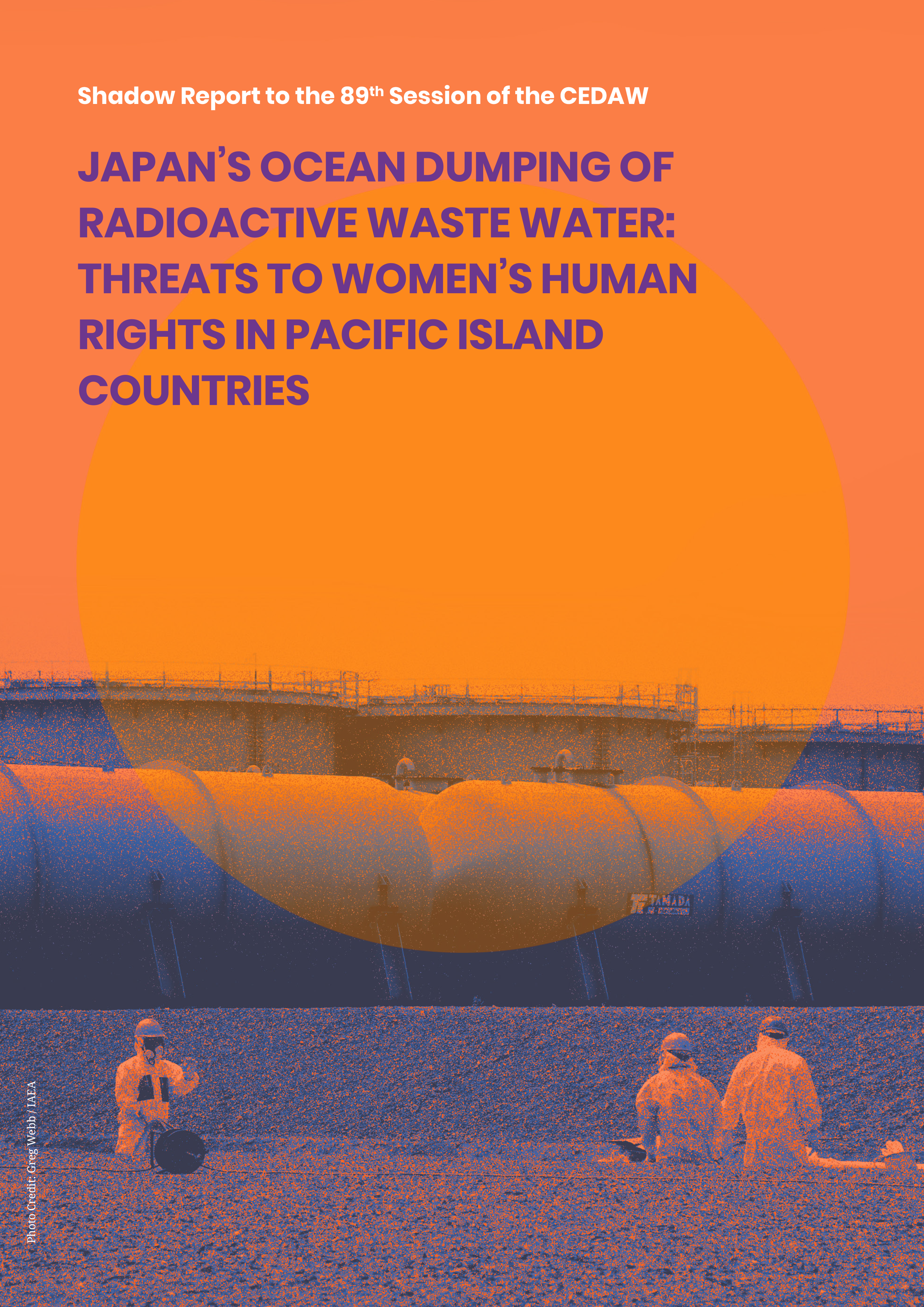This report – presented by DAWN and Pacific Network on Globalisation ahead of Japan’s review at the 89th Session of Committee on the Elimination of Discrimination against Women – highlights the risks of serious human rights violations including transboundary and intergenerational harms as well as reputational harms posed by Japan’s commencement on 24 August 2023 of its controversial 30-40 year plan to dump more than 1.3 million metric tonnes of radionuclide-contaminated waste water into the Pacific Ocean.
The waste water which is stored on land in 1,000 tanks was used to cool three nuclear reactors at the Fukushima Daiichi nuclear power plant following their catastrophic meltdown after the 2011 earthquake and tsunami.
Indigenous people in the Pacific region are well aware of the implications and effects of human exposure to radiation as many already live with those effects in their bodies as well as on their islands and in their lagoons and ocean from decades of nuclear weapons testing in their homelands by colonial powers.
Japan’s plan was conceived without due regard for the enormous risks of causing irreversible harm to the ocean and marine life and intergenerational harm to humans. It also took no consideration of the reputational harm it posed to the fisheries industries of Pacific Island states, or of the threat to food security, food safety and the subsistence livelihoods of Pacific Island people.
Both the Japanese government and Tokyo Electric Power Company Holdings, Inc (TEPCO), the 55.94% government-owned company that operated the Fukushima nuclear power plant, claimed that the radioactive waste water had been treated by the Advanced Liquid Processing System (ALPS), and was safe to dump in the ocean. Japan also claimed that the International Atomic Energy Agency (IAEA), the global regulatory body on atomic and nuclear energy, was satisfied with TEPCO’s proposed treatment of the wastewater, and had approved the disposal plan.
A panel of independent expert scientists commissioned by Pacific Island states through the Pacific Islands Forum (PIF) to examine the adequacy and thoroughness of TEPCO’s methodology of treating the wastewater and checking for radionuclides have identified major flaws in the treatment and testing process and strongly advised against Japan’s dumping plan.
Despite our urgent appeal, the Committee failed to address this critical issue in its recommendations. This omission disregards the voices of Pacific women and their right to live free from the harmful impacts of nuclear contamination.
We remain steadfast in our advocacy and will continue to hold Japan accountable and amplify the voices of affected communities. The fight for justice and environmental safety is far from over.

